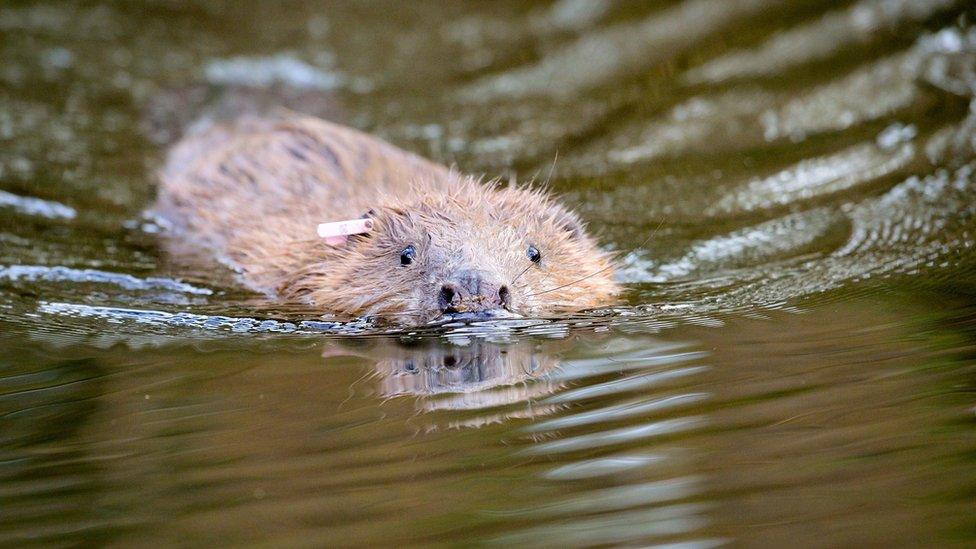Beavers reintroduced to Dorset after 400-year absence
- Published
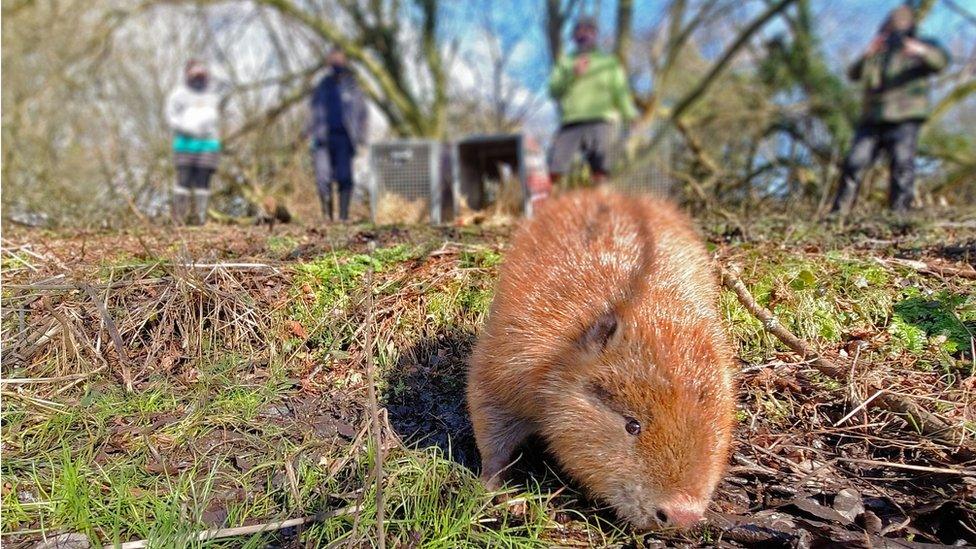
Dorset Wildlife Trust introduced Eurasian beavers into an enclosed site in the west of the county
Beavers are back in Dorset after an absence of more than 400 years.
Dorset Wildlife Trust introduced an adult male and female into an enclosed site in the west of the county on Monday.
They will live in a large area of freshwater habitat not accessible to the public which can be continually monitored by wildlife experts.
Rivers conservation officer Steve Oliver said welcoming beavers back to the county was "fantastic".
He said besides being "magnificent creatures in their own right" they were "extra special because their engineering activities have the potential to bring even more life to a landscape and enable other species to flourish".
The Eurasian beavers were relocated from Scotland under licence from NatureScot, the country's nature agency.
The project is part of a scientific study by the University of Exeter and Wessex Water to monitor the impact Europe's largest rodent has on water quality, flooding and other wildlife.
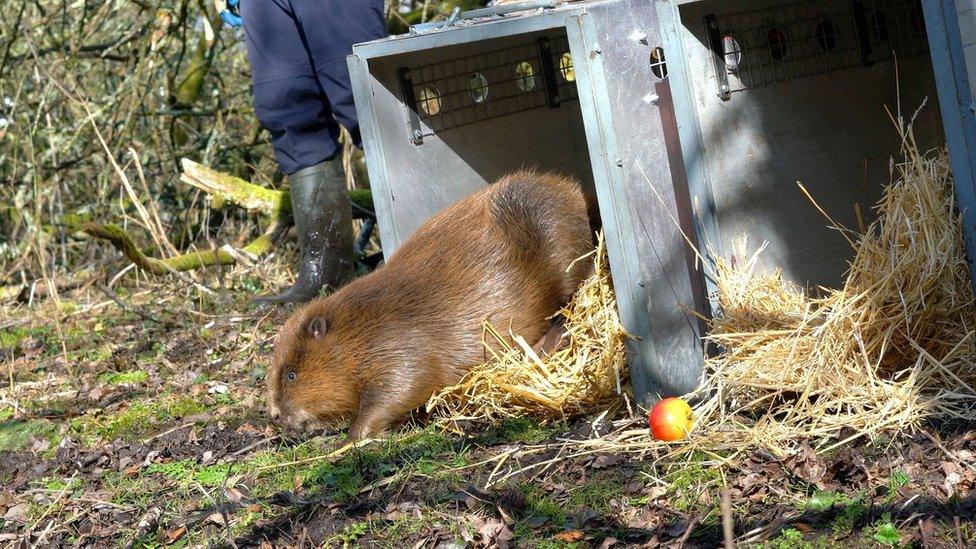
They will live in a large area of freshwater habitat not accessible to the public
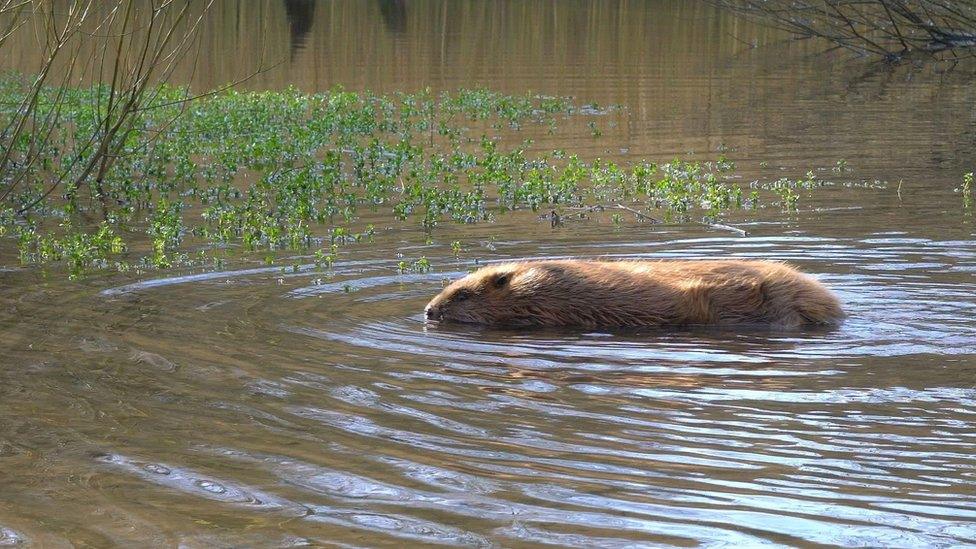
Beavers became extinct in the UK in the 16th century
It is believed the mammal's activities, such as the building of dams, could increase biodiversity, while filtering and cleaning water.
The dams could even reduce flooding by slowing the rate of water passing through rivers and streams during storms, the trust said.
Prof Richard Brazier, from the University of Exeter, said: "Beavers have been present on the planet for 40 million years or so, so they're a highly adapted species and know how to manage water resources. We could really learn a lot from them."
Beavers became extinct in the UK in the 16th century, largely because they were hunted for their fur, meat and the oil in their scent glands.
Reintroduction trials are under way throughout England, Scotland and Wales, external.
Related topics
- Published30 November 2020
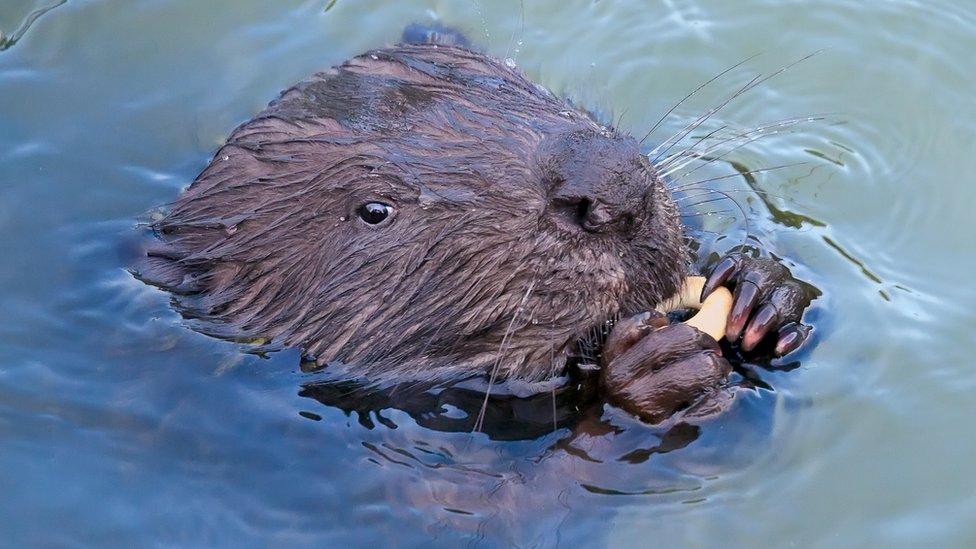
- Published30 November 2020
